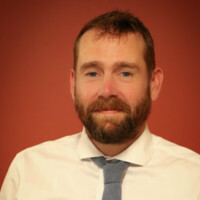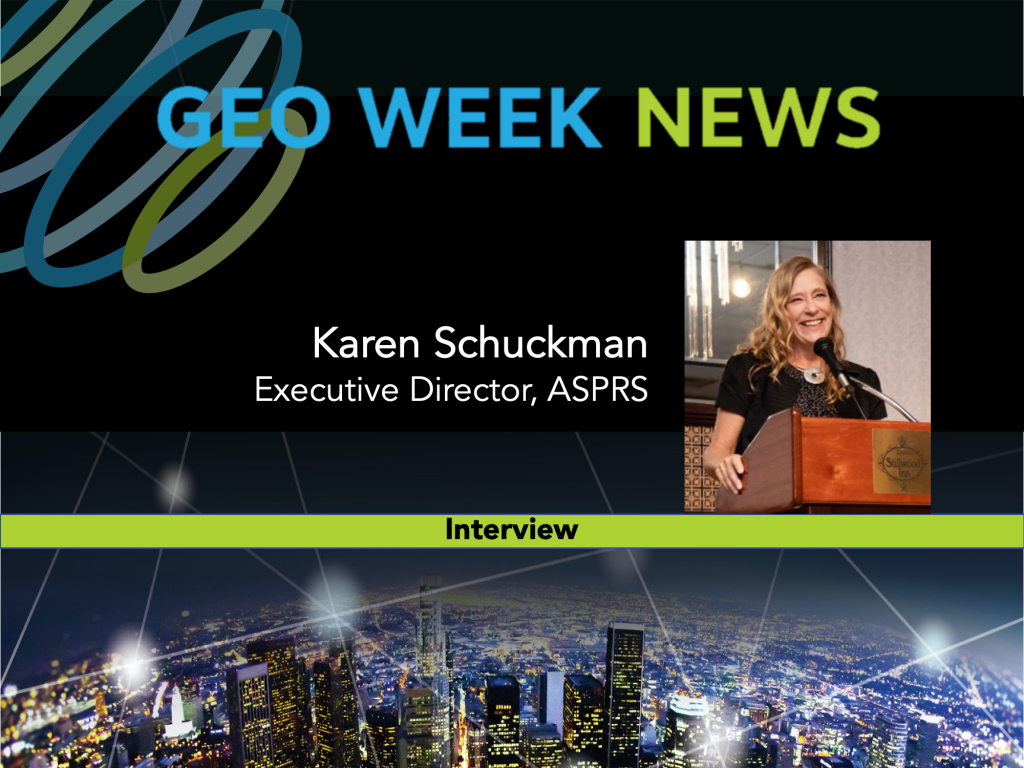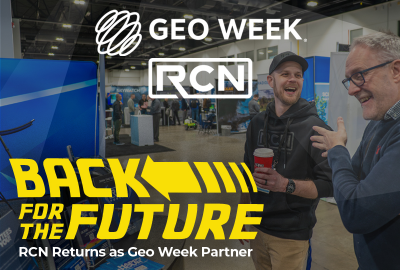This article is part of our Road to Geo Week series.
Click here to register for Geo Week in Denver, CO, February 6-8, 2022, and see ASPRS's conference program here.
As the executive director of the American Society for Photogrammetry and Remote Sensing (ASPRS) Karen Schuckman has gathered a cadre of speakers with real industry know-how to present in the ASPRS conference. While these speakers may not be the celebrity type, Schuckman knows many of them will soon be working big, high-profile jobs and may very well pop up at other conferences elsewhere in the future.
“Some will stay in academia,” she says from her State College, PA, office where she teaches at Penn State, “but a lot of them will go out and get jobs and become those government agency leaders, those business leaders.”
And we need them. “A lot of people who have led this remote sensing and photogrammetry industry for decades, we’re all getting older. And right now, we’re losing a lot of the big leaders in our field. We really need to feed that fire with more young people and ASPRS has a vibrant student advisory council, an early career council, mentoring programs — this is the future of the entire industry.”
Schuckman also says that some of these smaller academic projects might just lead to the next big thing. She remembers getting together “back in the day” at an ILMF meeting to talk about the North Carolina flood plain mapping project, one of the first big lidar projects.
“We were just launching that project with no standards, no specifications, no experience, and we used the ILMF forum to bring everyone together and talk about how we were going to move this technology forward. That really launched all of the statewide lidar projects that happened after that.
Today, there are similar leaps forward being taken, she says, especially with the cloud-hosted repositories of data that allow just about anyone to access incredibly rich datasets without the barrier of having to download all the data or have expensive analysis tools on hand.
“A lot of the remote sensing analysis work has been done by a few pretty expert people with pretty specific tools that are not so easily used by the casual GIS user,” Schuckman says.
But now, that’s changing. The value of 50 years of continuous land coverage data - like that provided by the Landsat program - is available to many more researchers and analysts who are using it to solve many more real-world problems.
“That’s really changing the way we can come up with new solutions for the kinds of problems climate change creates,” she says, by way of example. “For analyzing natural disasters, that’s a real game-changer.”
Being able to meaningfully contribute to the larger discourse, however, means having the nomenclature, standards, and other fundamental knowledge that industry professionals possess. “There are a lot more tools that make remote sensing accessible to a lot more people,” Schuckman says, “and those tools are going to be available to so many more people to do problem solving in whatever their area of interest is, but they still do need the fundamental knowledge to perform the analysis correctly. And coming to ASPRS can provide that fundamental knowledge, not only through the conference program, but also the other resources we provide year-round.”
ASPRS will still hold a virtual conference in March, for example, as it realized during the pandemic that virtual events open the space up to global researchers and interested parties who wouldn’t otherwise be able to participate, whether because they’re simply too far away for it to be worth their time or because of financial barriers. And there are all manner of trainings and resources available on the web site.
Still, the in-person event has tremendous value, in part because of the networking opportunities. Schuckman points particularly to things like the Sustaining Members Council and Early Career Professionals Council networking event on Feb. 7 at 2 p.m. “It’s not quite speed dating,” she laughs, “but it brings those groups together so that employers have a chance to talk to some early career professionals who are looking for jobs.”
Especially with talent being at such a premium nowadays, this might be a good reason for Geo Week attendees to extend their registrations to ASPRS’ program.
“While a lot of the exhibitors at Geo Week have a lot of private sector focus, or commercial focus, I would encourage them to get the ASPRS add on,” says Schuckman, “and make sure to come over and observe some of the sessions and meet some of those people — because those are your future employees.”






